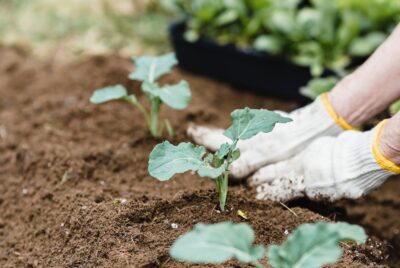RESEARCH
How Can Therapeutic Horticulture Help Meet the Complex Needs of Domestic Violence Survivors and their Children?
Summary
Therapeutic horticulture, which includes activities like gardening and farming, can help domestic violence survivors and their children heal from trauma by reducing stress, promoting relaxation, and fostering social inclusion. These programs, implemented in domestic violence shelters, also offer a space for self-care and recreational activities, particularly for children, while providing a connection to cultural traditions for immigrant and refugee survivors.
Beyond its therapeutic benefits, horticulture supports economic empowerment by offering survivors opportunities to develop marketable skills and work experience, as seen in programs like GreenHouse17. Additionally, shelter gardens can address food insecurity by supplementing food supplies with fresh produce, promoting healthier diets, and fostering inclusivity by growing culturally familiar foods. Despite challenges such as limited funding and space, partnerships with community organizations can help sustain these beneficial programs.







